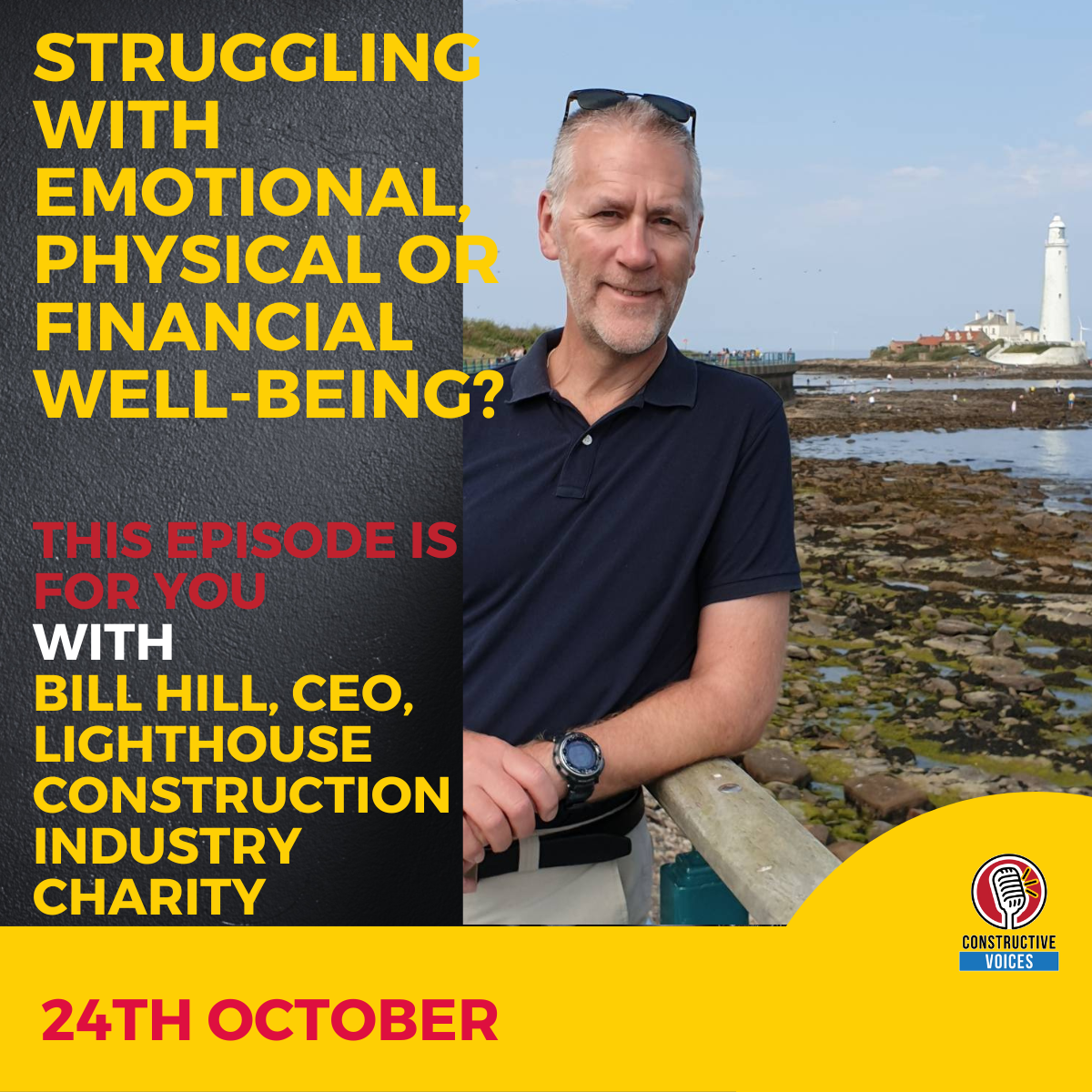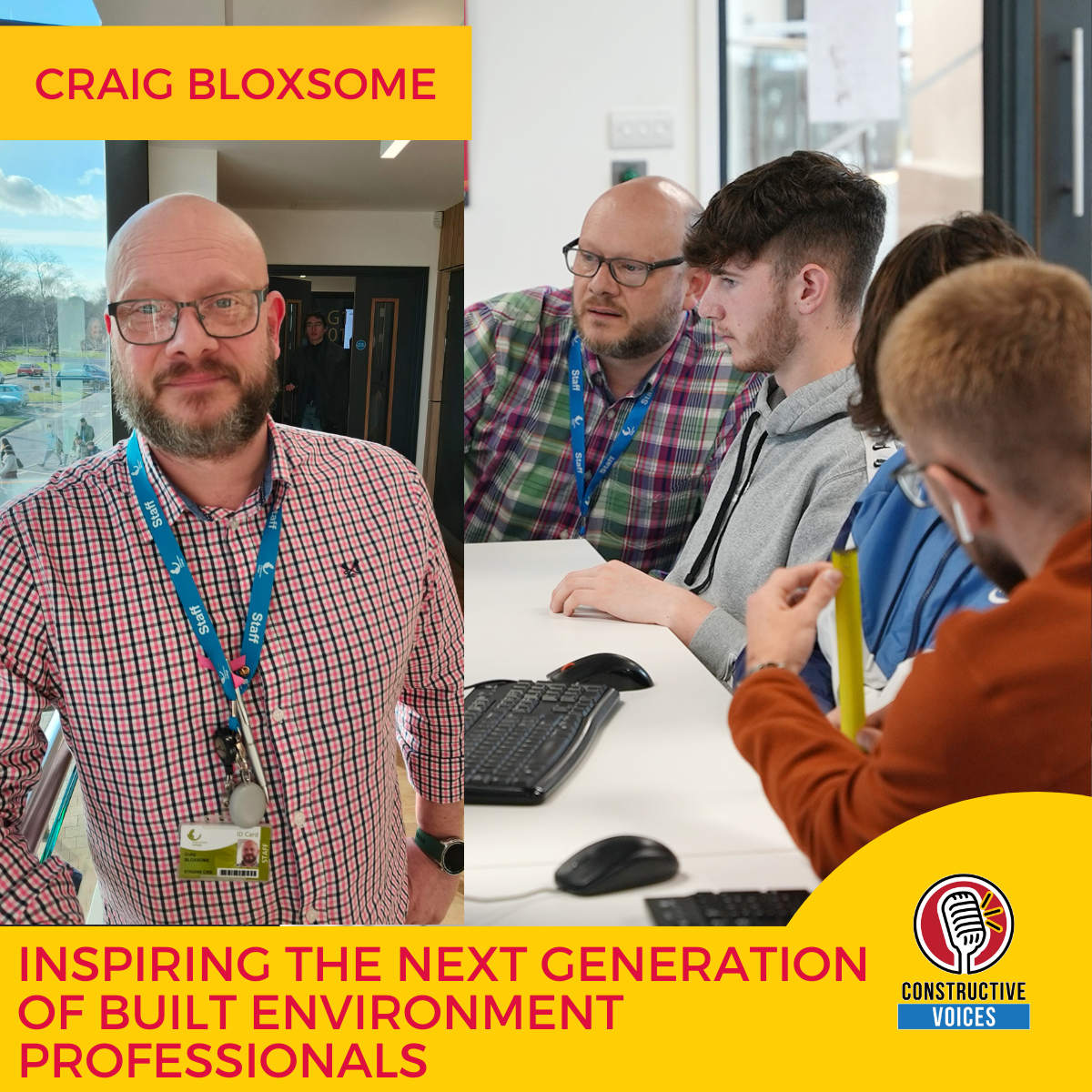Episode Transcript
[00:00:01] Speaker A: This is constructive voices. Welcome to the Constructive Voices series about inspirational women in engineering. Get a taste of these trailblazers with short snippets from their interviews. Full interviews can be five to 25 minutes, depending on the subject and interviewee. These spotlight style interviews work extremely well to showcase your team members on your website and social media.
In this first snippet, Emma Nicholson is talking to Kat Draper, who works for Mop Macdonald. Kat is the winner of 2024 we are the City Rising Star award for engineering and science. She was also a finalist for 2023 European Women in Engineering and Construction award, best civil engineer. She is a STEM ambassador and changemaker for EDI in STEM.
This is constructive voices.
[00:00:53] Speaker B: Why did you pursue engineering as a career in the first place and what motivated you? I guess my strengths have always been maths and science, and additionally they're my interests. And I think a common trait for engineers is problem solving. So engineering seemed like a fit, really, to do something that would apply that maths and science, but also introduce problems that needed solving in a day to day environment. So I specialized in civil engineering, which looks at infrastructure projects, finding solutions to problems. So they quite often work with water schemes or roads or rail. And I've specialised in highways.
There's a number of subsets, I guess, for topics that women face within the workplace and challenges. You know, you've got things from motherhood to menopause to gender pay gap and things. But obviously, it's not only women that do face bias and discrimination in the workplace. You know, we've got people of different races, ethnicities, religions, neurodiversity, sexual orientations. They can all be subject to those sort of unconscious bias as well.
[00:01:54] Speaker A: Constructive voices.
Our next female engineer is Joe Parker. Joe is a chartered civil engineer who was awarded an MBE by the Queen in 1994 for her services to the water industry.
[00:02:10] Speaker C: The toughest job I've ever done was getting a pipeline repaired in Bosnia. It ran from up, from the mountains down into Sarajevo, and it meant trying to source materials from all over the place and work out solutions with what I could find, negotiate with both sides, so with both the Serbs and the Muslims and try and get them to work together, we did manage it. And it meant that a whole area in Sarajevo had water restored so they, they didn't have to go along the infamous sniper alley and risk being shot at when they went to get water.
[00:02:58] Speaker A: This is constructive voices.
[00:03:01] Speaker C: I loved maths at school and I also loved maps and geography. And I came home one day having been introduced to plans and elevations in our maths class and thought this was really interesting. Said to my parents, architects use this sort of thing, but I don't think I'm arty enough to be an architect. So my father said, oh, it sounds like you want to be a civil engineer. So I said, what's a civil engineer? And he explained, they design and build things like bridges and dams. And I thought, that sounds really interesting. Made up my mind there and then. I wanted to be a civil engineer, probably at the age of about 1415. And I'm still a civil engineer 50 years on.
[00:03:51] Speaker A: Constructive voices in our final snippet, Emma Nicholson speaks to Oceania Ambiguita, who was a recent environmental engineering graduate at the time of this interview. Currently she is working as a graduate environmental scientist at ACoM.
[00:04:10] Speaker B: In terms of sustainability, how do you think engineers can make a difference?
[00:04:15] Speaker D: Can make a lot. So our job is to design and protect the environment and protect the people. So what we can do is, for example, in terms of water treatment, making sure that we are recycling the water that we're using on a plant or anywhere in the process of building something. So making sure that we recycle the water. And also in terms of steam, for example, where can we reuse the steam on the processed plant? Sustainability, in terms of also the material that we're using. A material which is of low carbon footprint. Material that is also.
That is also cheap because that also comes into sustainability. You just don't want something which you want something safe for the environment. But also, how sustainable is it in terms of like cost and also like designing. Designing buildings that are resilient to like climate impact. So we know that we'll have, like, you will have drought. Or we can also have like extreme, like floodings, for example, like rising sea levels. So making sure that the buildings that we are or the plant that we are building are sustainable in terms of like, we don't need any retrofitting later on. And they are safe for the people and also for the environment. To all the young female engineers who are listening to this, believe in yourself and be self confident. You can do anything that you want and anything that you set yourself to achieve. And you have people around you to help you through it and reach out to people. Never be afraid of asking questions.
[00:05:42] Speaker A: This is constructive voices. If your organisation wish to share stories, case studies, spotlight your team members and produce training clips, go to constructive dash voices.com stories.
This is constructive voices.


